Prescription Drug Addiction Treatment in California
But there is hope for people stuck in the cycle of prescription drug addiction. With the right support, individuals battling prescription drug addiction can rebuild their lives, rediscover their strength, and restore relationships damaged by addiction. Diverse treatment options are available at Westlake Village Recovery, where we help people find a path forward to sustainable recovery.
A person may start by following their doctor’s instructions. But over time, physical tolerance can develop and they require higher amounts to achieve the same relief. This progression mirrors the cycle of “regular” addictive drugs, where cravings and compulsive use take hold. Addiction develops when someone continues to use prescription drugs despite the negative consequences it may have on their life.


Types of Addictive Prescription Drugs
Opioid medications are typically prescribed to manage moderate to severe pain. It includes drugs like oxycodone, hydrocodone, morphine, and fentanyl. These drugs can be effective but highly addictive, due to their effective treatment of pain and potential to create feelings of euphoria. But these drugs work directly with essential systems in the body, including those that affect breathing and heartbeat. Once an addiction to opioids develops, withdrawal symptoms can be extremely painful and drive continued use.
Benzodiazepine medications (such as Xanax, Valium, and Ativan) are typically prescribed for anxiety, panic disorders, or insomnia. While they provide short-term relief, long-term use can cause dependence. The brain adapts to their calming effects, and stopping abruptly may lead to severe withdrawal symptoms like seizures and extreme anxiety.
Though not traditionally viewed as “addictive” in the same way as opioids or benzodiazepines, certain antidepressants (like SSRIs and SNRIs) can cause physical dependence. People may experience withdrawal symptoms known as “discontinuation syndrome” if use suddenly ceases. This makes careful medical supervision essential.
Stimulants, such as Adderall and Ritalin, have the potential to increase energy and focus in people without conditions like attention-deficit hyperactivity disorder (ADHD). When misused, stimulants can cause euphoria similar to illicit drugs like cocaine. Over time, tolerance, dependence, and addiction can develop.
Signs of Prescription Drug Addiction
Common indicators include:
- Taking higher doses than prescribed
- Using medication more frequently
- “Doctor shopping,” seeking prescriptions from multiple doctors (often without disclosure)
- Obsessive thoughts about obtaining or using
- Neglecting responsibilities and relationships
- Withdrawal from social activities and hobbies that once brought joy
- Declining performance at work or school
- Lack of focus
- Sudden mood swings
- Irritability
- Secrecy and defensiveness about prescription pill use
- Irregular sleep patterns
- Weight fluctuations
- Extreme fatigue, alongside emotional and behavioral changes.
- Financial struggles
Loved ones of people with prescription drug medication may notice missing medication from their personal supplies, unexplained financial struggles, or defensive behavior when the subject is raised. All of these are signals that they may be becoming addicted to prescription drugs.
Withdrawal Symptoms of Prescription Drug Addiction
Withdrawal symptoms can vary depending on the drug, but may include:
- Feelings of depression as the body adjusts to the absence of the drug
- Sweating
- Tremors
- Involuntary shaking
- Excessive perspiration
- Insomnia and/or nightmares disrupt sleep patterns
- Fatigue
- Feelings of anxiety
- Muscle aches and cramps
- Nausea
- Vomiting
- Diarrhea
- Seizures (particularly with benzodiazepines)
- Intense cravings
Because withdrawal symptoms can be severe, medical detox is strongly recommended for people looking to recover from prescription drug addiction. This takes place in a medical setting, where individuals are monitored by healthcare providers who can administer medications and supportive care to ease discomfort and reduce health risks. If anything happens during the process of detoxing, medical professionals can respond promptly and prevent damage to the body.
Treatment Options for Prescription Drug Addiction

Outpatient Treatment

Intensive Outpatient Programs (IOP)

Partial Hospitalization Programs (PHP)

Telehealth Treatment

Dual Diagnosis Treatment
Each of these treatment options is designed to help individuals reclaim their lives, offering different levels of care based on their needs. With the right support and tailored treatment plan, long-term recovery from prescription drug addiction is achievable.
Receive Support for Prescription Drug Addiction at Westlake Village Recovery
At Westlake Village Recovery, individuals receive compassionate, personalized care designed to meet their unique needs. Our range of services help provide support for people healing from addiction, no matter where they are in the process. Our approach combines evidence-based therapies, holistic healing, and professional guidance to help people overcome prescription drugs addiction and build a healthier future.
If you or someone you love is struggling with prescription drug addiction in California,we are here to provide the care and support needed for lasting change. Contact us today to learn more

